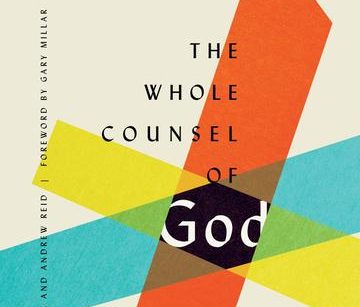How We Chose Our Bible Translation


Most church plants enjoy the freedom of working with a blank canvas—the chance to create something out of nothing. In amongst building a launch team, hunting for a venue and raising funds are the less obvious but equally important tasks, tasks like choosing a Bible translation.
The incoming pastor of an established church almost always inherits a translation. And even if he wants to change it, it’s probably not a change he should make in his first five years. But a church planter has a unique opportunity and it’s one he shouldn’t waste.
In our case, we could have simply defaulted to a tribal favourite. Instead, we decided to think from first principles—three, in fact: accuracy, readability and usability.
Accuracy
If something “goes without saying,” it generally needs to be said. We wanted a translation that is accurate.
Of course, achieving perfect accuracy is simply unrealistic. Not every Greek, Hebrew or Aramaic word has an exact equivalent in English. And the vast cultural gap between modern Australia and the Ancient Near East means that the same words often carry different meanings. The reality is, something always gets lost in translation, and every translation involves some degree of interpretation.
However, while our translation might never be perfect, it can be faithful. Even if we can’t translate the outward form of every word, we can effectively communicate its inward meaning. The best translations accurately capture the meaning of every word in the original text.
Unless our translation is accurate, we cannot possibly claim that it is the inspired word of God. That’s a problem. The Passion Translation of the Psalms, for example, is fifty per cent longer than the Masoretic Text. At that point, it’s hard to consider the translation divinely inspired.[1] Put positively, ‘translations of Scripture are the Word of God to the extent that they faithfully represent the original’.[2]
If a translation lacks accuracy, it lacks divine inspiration. If it lacks divine inspiration, it lacks divine authority (2 Peter 1:20–21). And if it lacks divine authority, it lacks divine power and sufficiency (Isaiah 55:8–11; 2 Peter 1:2). Unless a translation represents God’s ‘breathed out’ word, it simply cannot make us wise for salvation or train us in righteousness (2 Timothy 3:14–17). Without an accurate translation, preaching is empty, the gospel is not heard and God cannot be known.
Accuracy matters because without it, we don’t have the words of eternal life.
Readability
Reformed evangelicals typically emphasise the need for accuracy. We don’t always fare so well when it comes to readability.
The Reformation pioneered Bible translation into the vernacular. But in a twist of tragic irony, I wonder whether some risk functionally reinstituting the Latin. We might not literally read from the Vulgate but do we insist on always using unintelligibly wooden translations in the name of being “solid”? Do we undermine confidence in our reliable English translations by constantly qualifying, “in the Greek…”? Does our appropriately high regard for theological rigour sometimes, inadvertently, obscure the clear and present word?
Sadly, it’s not uncommon to hear comments which disparage dynamic translations as “light-weight” as if the task of choosing a translation were a simple matter of literal or terrible. Sometimes we fail to recognise that different translations serve different purposes. Sometimes we insist on the most formal translation in every circumstance while the unchurched sit in our pews ignorant of what the Lord saith.
William Tyndale died to put English Bibles in the hands of the plough-boys. Let’s not send them back to Latin. If accuracy is all that matters, we might as well use a Hebrew Old Testament and Greek New Testament: maximally accurate, totally unreadable.
Readability matters because ‘faith comes from what is heard, and what is heard comes through the message about Christ’ (Romans 10:17).
Readability matters because, “if I do not know the meaning of the language, I will be a foreigner to the speaker, and the speaker will be a foreigner to me.” (1 Corinthians 14:11).
What then counts as “readable”? Well that depends on our congregation. A church full of young professionals, is likely to judge readability somewhat differently from Indigenous children on Groote Eylandt. Insisting on a highly literal translation for an international student might be principled but counterproductive.
Usability
Charles Spurgeon writes, “A Bible that’s falling apart usually belongs to someone who isn’t.” Our Bibles are there to be read, so a translation needs to be, not just accurate and readable, but also serviceable for preaching, corporate worship and personal devotion.
If we take Deuteronomy and Hebrews as models of preaching, our sermons must be more than mere “Bible talks.” They need to practically apply Scripture to the people in our churches. They need to stir the affections and to motivate faith and obedience. Translations can help or hinder that task. In the pulpit, I want to use a translation that closes the distance between the act of reading and deep comprehension—a translation that captures both the meaning and pathos of a text.
In the Book of Common Prayer, we see the Bible used, not just in preaching, but also corporate worship. Biblical liturgy is a major casualty of the modern church planting movement. Praying Scripture together has been abandoned in order to be “missional” and “incarnational”. However, there is something powerful and even compelling in hearing, reciting and remembering the same words of comfort each Sunday with our spiritual family. The translation we choose will decide the words on our lips of our people.
Missiologists have long noted the deep intimacy of reading the Bible in our heart language. Like any language, English is dynamic and shaped by time, place and culture. In 18th century England, the King James Version was God’s voice in the people’s hearts. But in 21st century Australia, which English translation resonates most deeply with us? Which translation will we open by our bedside on our knees? Indigenous Bible translator, Maratja Dhamarrandji movingly writes:
“The Word of God in the heart language of the people can withstand all the pressures of life. This is what our people need, the Word of God in the language of the people. It is essential for our survival.”
Usability matters because without it, we can’t share the words of eternal life.
Spoiled for Choice
Whatever translation you choose, praise God for our abundance of choice. According to Wycliffe Bible Translators, 1.5 billion people don’t have a full Bible in their heart language and 2,163 languages are still without Scripture. At the same time, we in the West have more translations than we will ever need, and admit it—more than we will ever read.
Praise God for speaking in many tongues, for as many tongues as are spoken are tribes that will be saved.
[1] See Andrew G. Shead, ‘Burning Scripture with Passion: A Review of The Psalms (The Passion Translation)’ Themelios 43.1 (2018): 58–71.
[2] Chicago Statement on Biblical Inerrancy, Article X.
Note: The article was originally published at TGC Australia at https://au.thegospelcoalition.org/article/accuracy-readability-usability-chose-bible-translation/.
Get articles delivered straight to your inbox. Sign up for our mailing list here.
Follow us on:

Adam Ch’ng is the pastor of Cross & Crown, an FIEC church in the south-eastern suburbs of Melbourne. He is committed to cross-cultural ministry in Australia and South-East Asia, and serves on the committees of TGCA (Vic) and TGCA (Asia). Adam studied Arts/Laws at Monash University and theology at Ridley College. Prior to entering gospel ministry, he worked as a lawyer and ministerial adviser to the Abbott Government.
Related Articles
The Extension of Eden: From Promised Land to New Creation

The question of the promises regarding the land of Israel has always been a vexed one, arising afresh in the modern day conflict between Israel & Palestine. How does biblical theology help us in thinking rightly about the Promised Land? In this, article, we consider the Bible's teaching from Genesis to Revelation and it's implications for how we think about the Promised Land today.
Review: The Whole Counsel of God – Why and How to Preach the Entire Bible

Few evangelicals today will question the importance of expository preaching. What is less clear, however, is our commitment to preach the whole Bible—every verse, every chapter and every book. In The Whole Counsel of God, Tim Patrick and Andrew Reid convincingly argue that it is not enough for us to merely preach from the Bible...
The Unbreakable Chain of Salvation (Part 4) – Individual Election in Romans 9

Paul’s use of the word “election” to characterize this plan reflects his purpose in this part of Rom. 9: to demonstrate that God’s plan has unfolded in the OT by a series of free “choices” that he has made. Isaac was chosen; Ishmael was not. Jacob was chosen; Esau was not…
